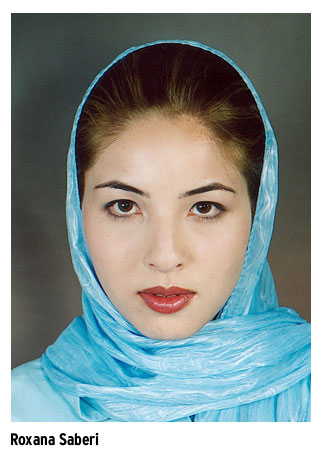Saberi to be treated as Iranian, not US national, official says
 Tehran - Iran's intelligence service chief said Tuesday that Iranian-American journalist Roxana Saberi would be treated as an Iranian and not as a US national.
Tehran - Iran's intelligence service chief said Tuesday that Iranian-American journalist Roxana Saberi would be treated as an Iranian and not as a US national.
"Saberi is an Iranian national and has come to Iran with an Iranian passport and is now charged as an Iranian and will therefore be treated just like any other Iranian," Mohseni Ejehi told ISNA news agency.
Saberi, who has an Iranian father and Japanese mother and is a US citizen, was sentenced to an eight-year jail term last week on charges of spying for the US government.
US President Barack Obama rejected the spying charges but Tehran called on Obama, as a law graduate, to respect the Iranian judiciary's decisions and independence and not to politicise the Saberi case.
In Iran, dual nationality is not acknowledged but tolerated. In official cases, however, only the nationality of the father is counted and not the citizenship of either the mother or that of a third country.
The intelligence service head said that Saberi had the obvious right to appeal against the verdict by the initial court.
Judiciary spokesman Alireza Jamshidi said Tuesday that Saberi has already appealed and hoped that the appeal court would revise the initial verdict.
According to Jamshidi, the head of Iran's judiciary called for a fair appeal court for Saberi and ordered the director general of the Tehran court to give her all legal rights in the appeal court and enable a careful and quick evaluation of the case.
Also President Mahmoud Ahmadinejad on Sunday called on Tehran's general prosecutor to personally follow the Saberi case with precision and fairness, in line with all legal norms. He also stressed Saberi's right for legal defence assistance.
Observers consider Ahmadinejad's surprising interference in the Saberi case as an effort by the government to persuade the judiciary to revise the harsh sentence and avoid an international political outcry.
Saberi, 31, a reporter for US National Public Radio, originally faced less serious charges of buying alcohol and of working without a valid press card.
She has been in Tehran's Evin prison since January, following her arrest for buying a bottle of wine. Both buying and consuming alcohol are forbidden in Islamic Iran.
But the judiciary then charged her with espionage, and Tehran's deputy prosecutor Hassan Haddad announced last week that Saberi's case was sent to a revolutionary court which decides in cases involving offences against national security.
Haddad also claimed that Saberi had accepted all charges.
Saberi's Iranian father and Japanese mother are currently in Tehran and plan to stay until they are allowed to take their daughter back home to the upper Midwest US state of North Dakota. (dpa)